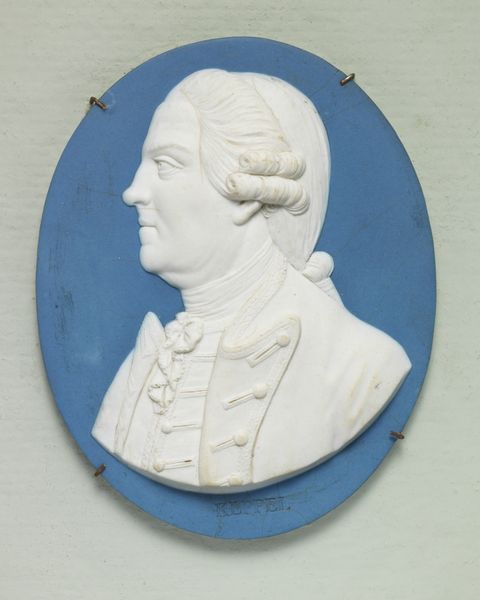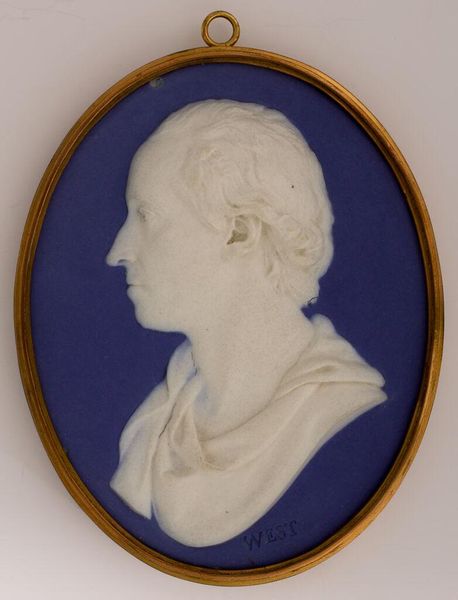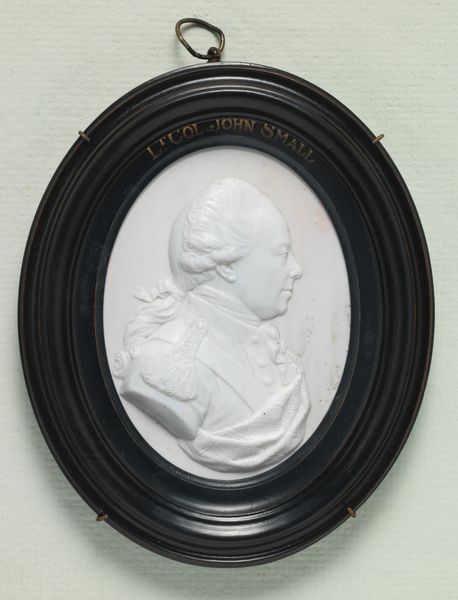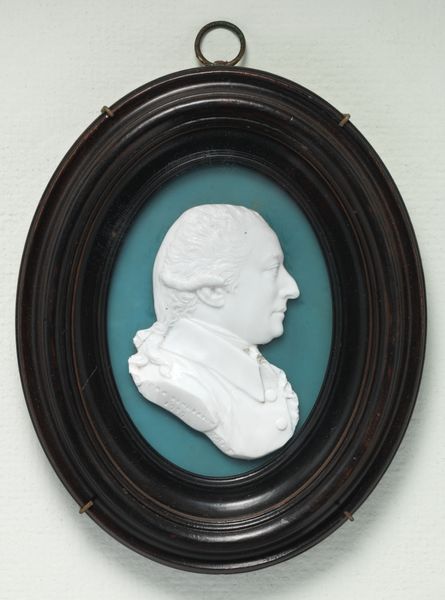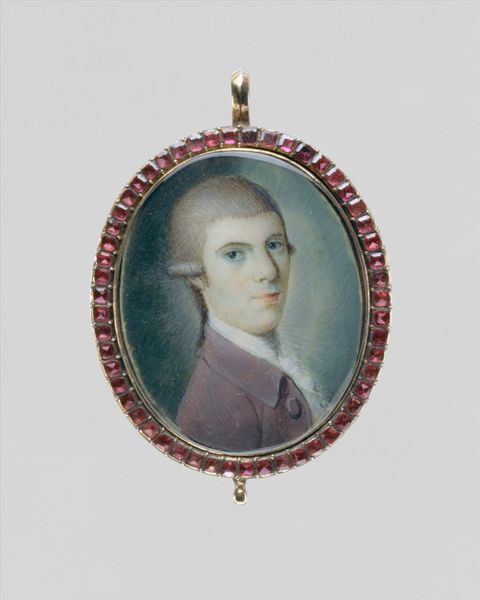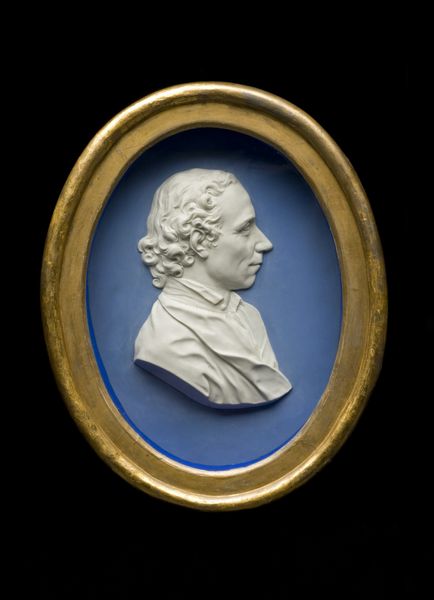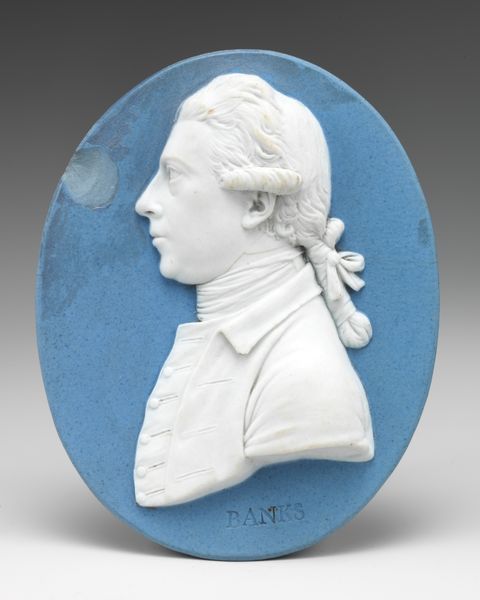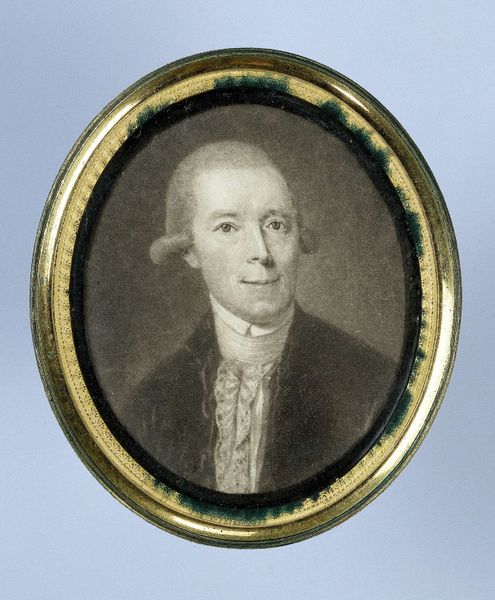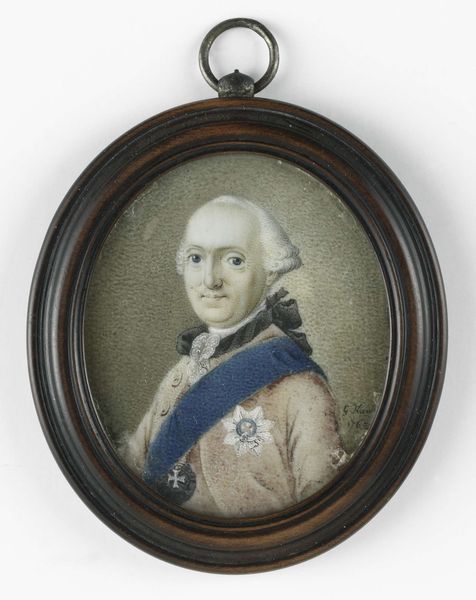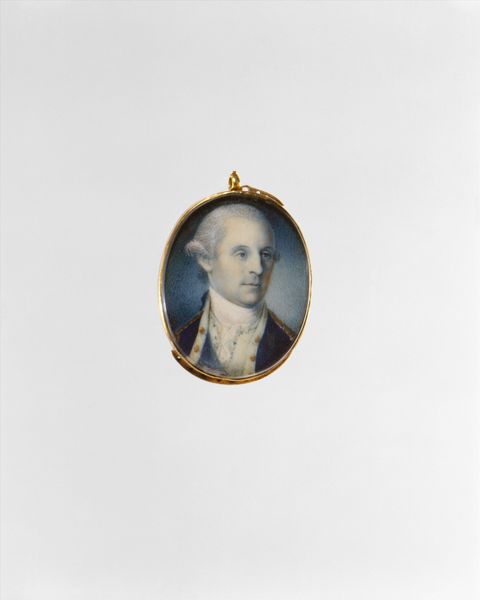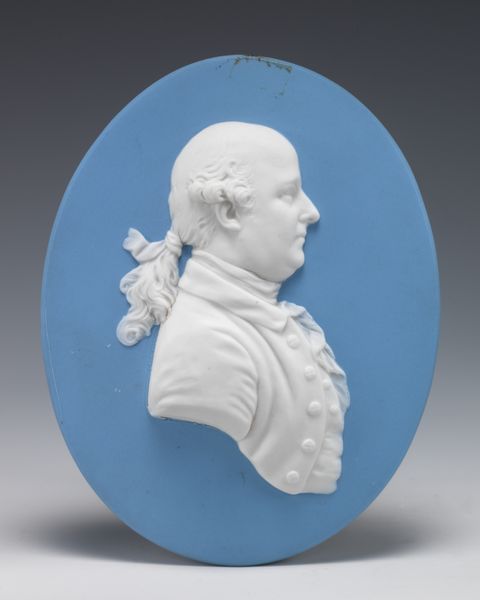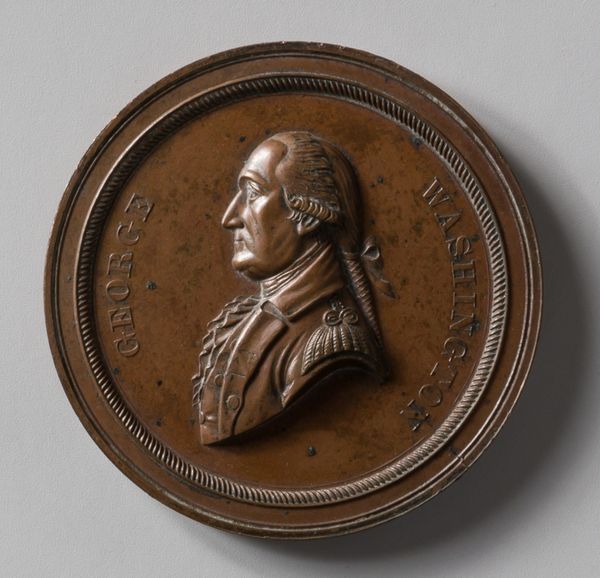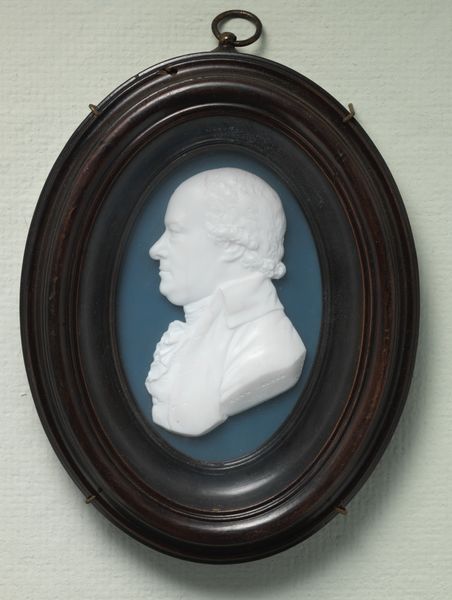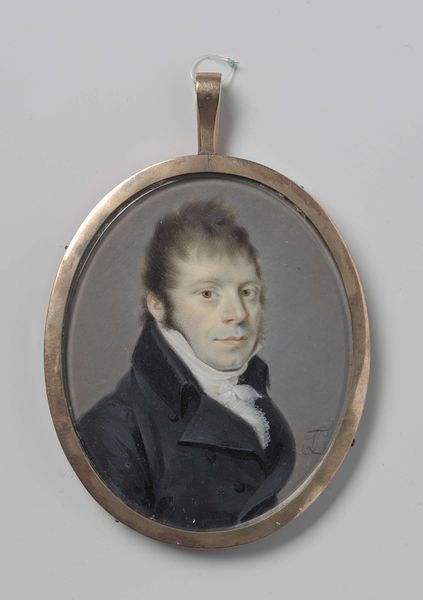
metal, relief, ceramic, sculpture
#
portrait
#
neoclacissism
#
metal
#
sculpture
#
relief
#
ceramic
#
sculpture
#
men
Dimensions: 3 3/8 × 2 5/8 in. (8.6 × 6.7 cm)
Copyright: Public Domain
This striking portrait of Captain James Cook was made by Wedgwood and Bentley around 1779, using jasperware, a type of fine stoneware. The slightly roughened surface of the white figure against the smooth blue ground is characteristic of this material, which gained popularity in the late 18th century for its ability to mimic ancient cameos. The crisp details, from the Captain's neatly arranged hair to the buttons on his coat, are achieved through meticulous mold-making and firing processes. Wedgwood perfected this technique, allowing for the mass production of high-quality decorative objects. But there's a complex duality here: a celebration of Cook's explorations, rendered in a material made possible by industrial innovation. It's a fascinating intersection of art, craft, and commerce, reflecting the era's expanding global horizons and the blurring lines between art and industry. By appreciating the material and the methods of its production, we can understand how this object gained its social and cultural resonance, and challenges traditional distinctions between fine art and craft.
Comments
No comments
Be the first to comment and join the conversation on the ultimate creative platform.
